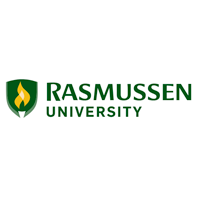
Information Technology Degrees
IT expertise is highly valued in hundreds of industries worldwide—and you can choose the path that suits you best. Start or advance your path in the technology field at Rasmussen University.
We offer a quick, affordable pathway—a ladder that starts with no prior college credit and takes you in stages through your Bachelor’s degree. Each Certificate can be completed in as few as six months to help you apply skills right away. You gain skills and credentials to add to your resume at every step.

Classes are affordable and available with eight start dates a year to fit into your schedule. Complete online Bachelor’s degree courses built with Empowered Learning™, which allows you to learn by doing real-world projects, manage your pace and stay connected with faculty and peers from start to finish.
Ready to Learn More?
These fully online programs meet you where you are, to help you take the next step toward achieving your career goals as you:
- Acquire skills through a variety of industry-leading software programs, hardware configurations, installations, repairs and support—all through hands-on learning, virtual labs and simulations and real-world projects
- Prepare for industry certifications
- IT Support Certificate: CompTIA A+ (Parts 1 and 2), CompTIA Network+ and Windows 10 MD-100
- IT Associate’s degree: CompTIA® A+ (parts 1 and 2), CompTIA Security+, CompTIA Network +, Microsoft® Windows 10 MD-100
- IT Project Management Certificate: CAPM® (PMI Certified Associate in Project Management)
- IT Management Bachelor’s degree: CAPM®, ITIL and Six Sigma® White Belt
- Save time and money with self-directed assessments. These $149 online assessments allow you to prove that you already have the skills for a particular course and don’t need to take it.
- Learn through immersive online classes led by industry-experienced instructors who are passionate about both technology and education
- Benefit from learning soft skills, such as communication and critical thinking, on top of program-specific knowledge—all to become well-rounded and career-ready
